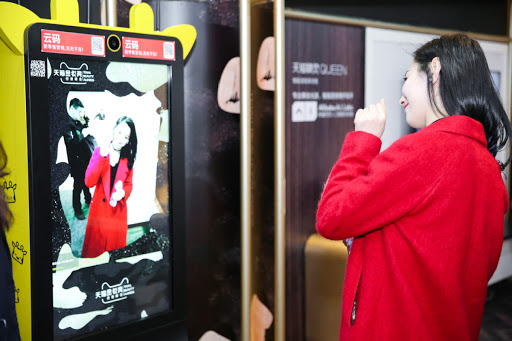
Alibaba Group Holding’s new mirror is equipped with an artificial intelligence-powered smart speaker. On voice command, it adjusts light settings to let users see their face perfectly. The mirror also offers beauty tips, monitors UV levels and can even help order cosmetic products. Companies are stepping up their efforts to marry beauty with technology as they look to tap into growing demand from China’s tech-savvy customers.
Sales of beauty devices reached 4 billion yuan ($595 million) in China in 2017, with an estimated growth of 50% last year. Sephora launched its first concept store in Asia last September in Shanghai. In Hangzhou, Alibaba deployed its Magic Mirror device at a local shopping mall, where the AR-enabled interactive digital screen offers virtual makeovers to women waiting in line at restrooms. The company plans to introduce the Magic Mirror across the nation.
China’s move to integrate tech with beauty is also part of a global trend, analysts say. In Japan, leading beauty brand Shiseido has teamed up with Microsoft to create an AR-enabled makeup app. L’Oreal, meanwhile, last year acquired ModiFace, a Canadian startup specializing in AR and AI technology. Some Chinese customers have already decided they will not be interested in Alibaba’s smart mirror.
Beautytech4 Beauty is the new buzzword in China’s tech world